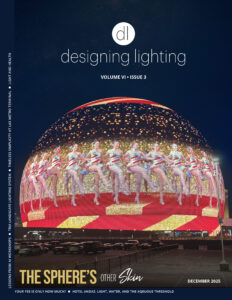About International Dark Sky Week April 21-28, 2025
International Dark Sky Week is a worldwide celebration of the night. From the darkness needed for a good night’s sleep to the activities we enjoy under the stars, the night plays a vital role in safeguarding healthy ecosystems and wildlife biodiversity, enhancing science and exploration, preserving cultural knowledge, and so much more.
With artificial light at night increasing, dark skies worldwide are quickly fading—disrupting nocturnal habitats, diminishing our view of the stars, and changing our relationship to the night. We invite you to join us as we discover the night together, exploring its importance and the actions we can take to protect dark skies.
Learn more at idsw.darksky.org
About light pollution
Did you know that light can be a pollutant? Overly bright and unnecessary outdoor lighting creates glare and skyglow, destroying critical nocturnal wildlife habitats, harming human health, and diminishing our view of the stars.
As lighting options become more inexpensive and brighter, we are illuminating the night more and more. Every eight years, light pollution around the world doubles! Today, 80% of the world’s population lives beneath light-polluted skies. 8 out of 10 children will grow up never seeing the Milky Way.
While lighting at night is necessary in today’s world, there are easy steps you can take to ensure your lights protect the night! Check out DarkSky’s Five Principles for Outdoor Lighting! Learn more
DarkSky PSA
Look up into the night sky. How many stars can you see? Light pollution continues to grow at an alarming rate, doubling every eight years, taking away our view of the stars while harming human health and critical wildlife habitat. Did you know, smart and simple lighting practices around your own home and community can make a difference? Learn more about what you can do to help save the night at darksky.org.
Wildlife at night
Did you know plants and animals depend on natural light cycles to govern life-sustaining behaviors such as reproduction, nourishment, sleep, and protection from predators? Scientific evidence suggests that artificial light at night has deadly effects on many creatures, contributing to declining biodiversity worldwide.
Artificial lights can cause migrating birds to wander off course toward dangerous cityscapes. Millions of birds die every year when they collide with needlessly illuminated buildings and towers.
Hatchling sea turtles find the sea by detecting the bright horizon over the ocean. Artificial lights draw them away from the ocean. In Florida alone, millions of hatchlings die this way every year.
We are just starting to understand the devastating effects of artificial light on habitats. Learn more
Human health and well-being
Did you know our health is dependent on the dark? Over the past 100 years, humans have transformed the night, erasing the natural darkness with which we evolved. While artificial light at night is crucial to our modern world, it comes at a cost.
Increasing scientific research indicates that artificial light at night harms human health, including circadian rhythm disruption and decreased melatonin production, leading to an increased risk of obesity, diabetes, mood disorders, reproductive problems, and cancers. Learn more
Safety and security
Lighting up the nighttime environment does not necessarily increase safety and security. Effective lighting that helps people be safe —not just feel safe—is a win-win situation for everyone.
Poorly designed outdoor lighting can backfire on safety. Bright and misdirected lights create shadows for criminals to hide, and some crimes, like vandalism, thrive in well-lit areas. Floodlights, for example, may highlight potential targets. Learn more




